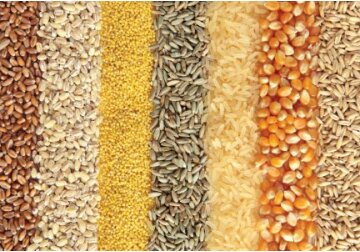
Moldovan farmers will receive new urgent assistance in the form of seeds, fodder for livestock and other agricultural inputs worth about $1 million within 2 FAO projects.
The Ministry of Agriculture and Food Industry announced this, noting that the UN Food and Agriculture Organization (FAO) in Moldova, in cooperation with the Austrian Development Agency (ADA), the Government of Japan and the Government of Switzerland, has initiated a new phase of urgent agricultural assistance to small farmers and vulnerable rural households facing the consequences of the 2022 drought and crisis in the region. The plan is to provide 622 rural communities with essential agricultural inputs this spring: vegetable seeds, seed potatoes and livestock feed. The resources worth about $1 million are financed by 2 FAO projects: the joint FAO and UNDP initiative "Emergency support for agri-producers in the context of socio-economic and energy crisis", financed by ADA and the Swiss Government through the UN Fund "Partnership for Sustainable Development Goals Moldova 2030" and the FAO project "Rapid assistance to support agricultural production and protect food and nutrition security of highly vulnerable agricultural households affected by the conflict in Ukraine and drought", funded by the UNDP and UNDP. FAO Deputy Representative in Moldova, Tudor Robu, emphasized the urgent need for cattle feed, saying that this assistance is crucial for vulnerable families who rely on livestock to meet their basic food needs. To this end, nearly 2,500 families owning between 1 and 5 cows will each receive 400 kilograms of animal feed, providing them with the necessary animal feed before the new grazing season begins. Approximately 12,000 vulnerable beneficiaries who urgently need support will receive assistance. The vegetable seeds will be distributed in 8 districts, including: Soroca, Hincesti, Orhei, Cantemir, Riscani, Floresti, Edinet and Drochia, while potatoes will be distributed in 5 districts: Orhei, Cantemir, Stefan-Voda, Edinet and Riscani. At the same time, 4 districts will receive animal fodder: Cimislia, Falesti, Stefan-Voda and Soldanesti. Vegetable seeds will be distributed in February, at the beginning of the planting season. Each kit, intended for small-scale cultivation, is designed for growing vegetables in greenhouses of 50 to 1,000 square meters and includes a set of tomato and cucumber seeds, fertilizers, pheromone diffusers and seedling trays. In addition, about 8,000 households will each receive 50 kilograms of seed potatoes. "The Austrian Development Agency is actively involved in alleviating the difficulties faced by farmers and rural households in the country. Our cooperation with Moldova and international organizations such as FAO and UNDP confirms our commitment to promote sustainable development and food security in our partner country," said Gunther Zimmer, head of the Austrian Development Agency's office in Chisinau. For his part, the head of the Swiss Cooperation Office in Moldova, Guido Beltrani, said that this project is fully in line with the long-standing commitment to support Moldova's development and sustainability. "Thanks to this contribution in particular, the Swiss government is contributing to food security in the region and helping to mitigate the negative effects of the current military conflict in Ukraine by supporting the most vulnerable farmers in rural areas, especially women and young farmers," he emphasized. Japanese Ambassador to Moldova Yamada Yoichiro said that this assistance embodies Japan's solidarity with Moldova in these difficult times and strong support for Moldova's path to recovery and sustainable development. "We are confident that through cooperation with FAO and other stakeholders, we will be able to achieve significant results for the people of Moldova," the Japanese diplomat said. Agriculture and Food Minister Vladimir Bolea praised the assistance initiative and thanked the international partners for their support in addressing the urgent needs of vulnerable rural families in Moldova. According to him, the program is a testimony of the ongoing commitment to mitigate the effects of the current challenges faced by the agricultural sector, especially small farmers. In addition to distributing agricultural inputs, FAO will train farmers in the use of climate-optimized technologies and income-generating practices, which will also include 200 women farmers as beneficiaries. This integrated approach, in addition to responding to the immediate needs of agriculture, will ensure long-term sustainability and access to markets. According to the Ministry of Agriculture, since the launch of the FAO Rapid Response Plan in 2023, in collaboration with ADA, Switzerland and Japan, substantial assistance has been provided to rural communities in Moldova, namely families and farmers facing economic hardship and the adverse impacts of climate change. 2,830 families from 120 communities in Causeni, Basarabeasca, Cahul, Cantemir and Leova districts received fodder for livestock. Each family received from 350 to 375 kg of fodder necessary for survival in the current food shortage. In addition, the program facilitated the distribution of 30 tons of maize seeds and 60 tons of fertilizer to more than 1,200 smallholder farmers in Calarasi, Riscani and Cantemir districts. // 13.02.2024 – InfoMarket







